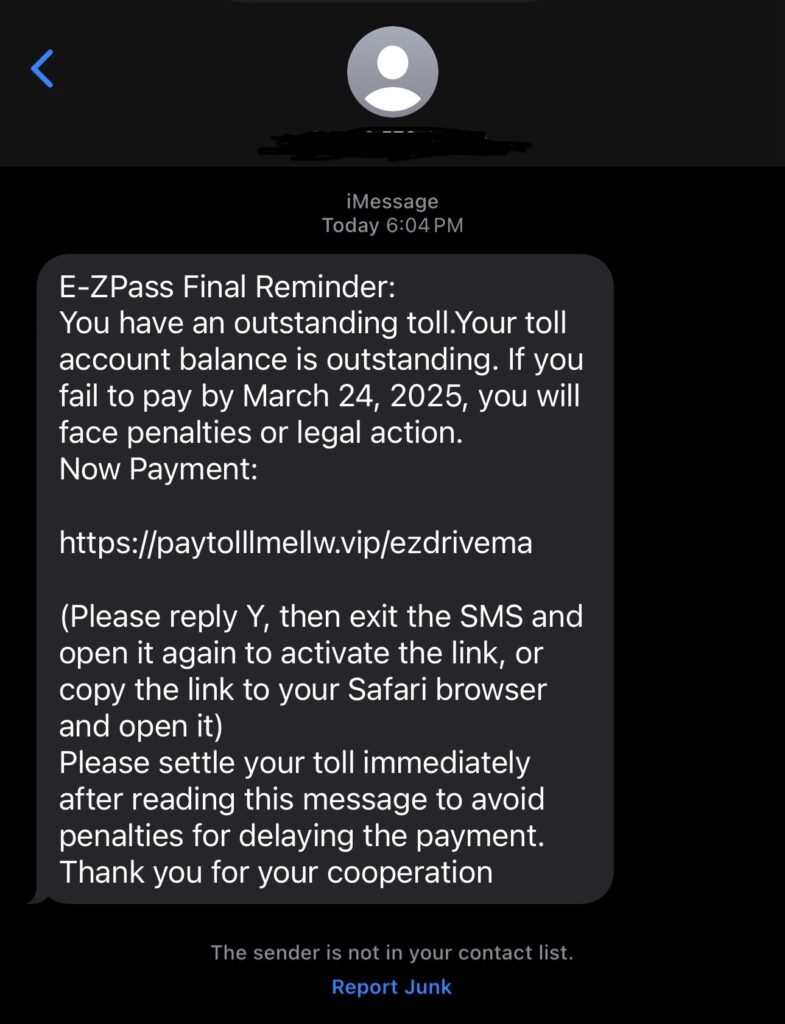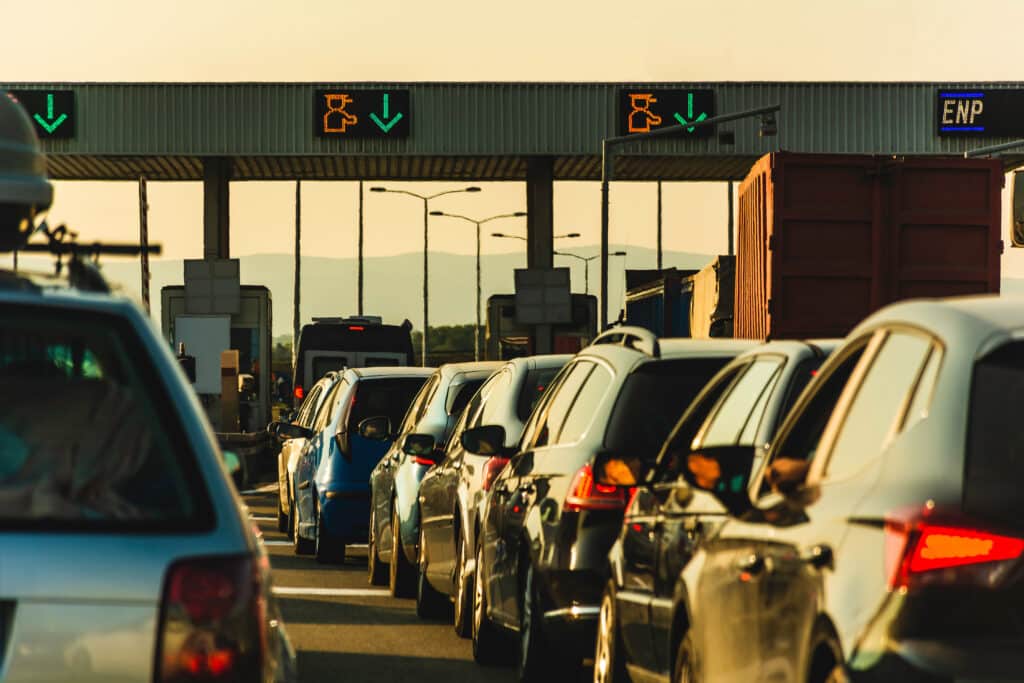Don’t Fall for this DMV-Themed Toll Scam
Have you received a text from the “DMV” claiming you owe a small toll fine or that your license is about to be suspended? You’re not alone—and it’s probably a scam.
A new phishing campaign is sweeping across the U.S., using fake messages that appear to come from the Department of Motor Vehicles (DMV). These scams are designed to look official, stir up panic, and trick you into handing over personal information. And they’re getting more convincing by the day.
At Cumberland Connect, your online security is part of our commitment to keeping you connected with confidence. So let’s break down how this scam works and how to stay one step ahead.
What the Scam Looks Like
Here’s the play-by-play of how this scheme typically unfolds:
1. You get a message—usually via text
The message claims to be from your state’s DMV or transportation agency or a toll booth operator. It might say:
- You owe a toll fine.
- Your license is at risk of suspension.
- There’s an urgent update needed on your DMV profile.
Often, it includes a short link and a time-sensitive warning to act fast.
Example text: “Tennessee DMV: Final warning—your license will be suspended. Resolve $6.45 toll balance here: [link]”

2. You click the link
The link leads to a website that looks just like a state DMV site. The design is convincing, using official logos, fonts, and layouts. Some even spoof the state name in the web address.
But look closer—the domain usually ends in something suspicious like .cfd, .win, or .org-gov.com. These aren’t official government websites.
3. You’re asked to “pay a small fine”
The site prompts you to pay a toll fee of $6–7. Seems harmless, right?
Except before you check out, it asks for:
- Your full name and address
- Driver’s license number
- Social Security number
- Credit card info
At that point, the scammers have everything they need to commit identity theft or financial fraud—and you’ve paid them to do it.
Why This Scam Works So Well
It’s smart. It plays on a few key psychological tricks:
- Trust in government: People are more likely to believe a message that looks like it came from a public agency.
- Panic: Nobody wants their license suspended or to face legal trouble.
- Low-dollar ask: Asking for a small fee makes it seem less suspicious and increases the chance people won’t think twice.
How to Protect Yourself
If you receive a message like this, pause before you click. Use this checklist to stay safe:
✅ Check the sender
Does the text come from a random number or strange domain? That’s a red flag.
✅ Don’t click suspicious links
If you think there’s a real issue, go directly to your state’s official DMV website by typing the address yourself.
✅ Look closely at the URL
Legit government sites end in .gov. Anything else—especially odd domains like .cfd—is likely fake.
✅ Watch for poor grammar and odd phrasing
Government agencies don’t send messages with typos or vague threats.
✅ Never share personal or payment information via text
If someone’s asking for your SSN or credit card out of the blue, assume it’s a scam.
✅ Report it
Forward scam texts to 7726 (SPAM) and report phishing websites to the FTC at reportfraud.ftc.gov.
What You Can Do Right Now
Stay alert. These scams are evolving, and they’re not going away. Share this article with your friends and family so they know what to watch out for.
Use tools that help. Spam filters, secure browsers, and regular updates on your devices can help catch scams before they reach you.
Got a question? If you’re unsure about a message you’ve received, reach out to the actual DMV. Make sure you look up their actual phone number online, and don’t call any numbers given to you through a text!
Final Thought
This scam may only ask for a few dollars—but the cost of falling for it can be much higher. A few quick steps now can help protect your identity, your accounts, and your peace of mind.
Stay safe out there—and remember: when in doubt, don’t click.
